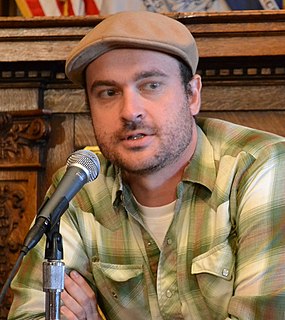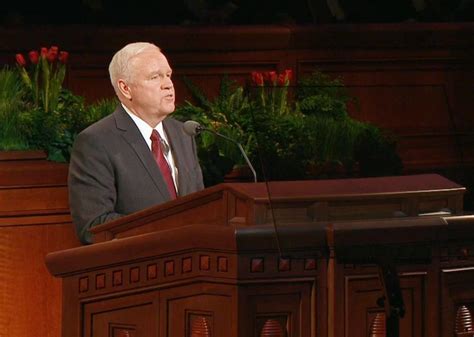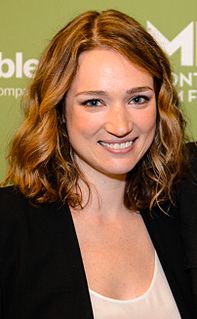A Quote by Kristin Hannah
It was true; always had been. Friendships were like marriages in that way. Routines and patterns were poured early and hardened like cement.
Related Quotes
I feel like I've been lucky that I've never been put in a situation where I had to keep a serious secret. But what is true of me - and has to be true of everyone who's ever been in a family - is that our idealization of reality when we're children always has to fall apart. It's the narratives we didn't know about that pop up and redraw reality. You have to be able to integrate secrets into who you are. My family does not look now like it does when I was a kid. There was divorce. There were family secrets. There was definitely a difference between what I thought was true and what was true.
When I was a kid, a lot of my parents' friends were in the music business. In the late '60s and early '70s - all the way through the '70s, actually - a lot of the bands that were around had kids at a very young age. So they were all working on that concept way early on. And I figured if they can do it, I could do it, too.
Beyond the earliest days of the religion, early Christians were believers because they'd been converted, not because they were witnesses to supernatural events, just like today. The 9/11 hijackers believed in Paradise for martyrs, but that doesn't mean that that's true. We have no good reason to imagine that eyewitnesses wrote the gospels rather than someone simply documenting the Jesus story as it had developed within their church community.
My siblings and I were raised like tenants, to be honest. There was a total absence of intimacy in my family, though there was still a great deal of camaraderie among the kids. Things were set up almost like a business, and it had to be managed that way because we were really poor, and there were a lot of mouths to feed.
I don't know if any of you feel this way, but it's like eventually, you see a woman come on screen and you go, "Oh, thank God!" You just sort of need a break from all this testosterone, which happened, I think, in one of my films, The Hurt Locker. I was in it for like five minutes, and people were like, "You were in that movie!" And I was like, "Well, kind of." And they were like, "No, you were!" 'Cause they needed a woman!
These early Saints were indeed homeless, but they were not hopeless. Their hearts were broken, but their spirits were strong. They had learned a profound and important lesson. They had learned that hope, with its attendant blessings of peace and joy, does not depend upon circumstance. They had discovered that the true source of hope is faith—faith in the Lord Jesus Christ and in His infinite Atonement, the one sure foundation upon which to build our lives.
He should have known better because, early in his learnings under his brother Mahmoud, he had discovered that long human words (the longer the better) were easy, unmistakable, and rarely changed their meanings, but short words were slippery, unpredictable changing their meanings without any pattern. Or so he seemed to grok. Short human words were never like a short Martian word - such as grok which forever meant exactly the same thing. Short human words were like trying to lift water with a knife. And this had been a very short word.
There were doors that looked like large keyholes, others that resembled the entrances to caves, there were golden doors, some were padded and some were studded with nails, some were paper-thin and others as thick as the doors of treasure houses; there was one that looked like a giant's mouth and another that had to be opened like a drawbridge, one that suggested a big ear and one that was made of gingerbread, one that was shaped like an oven door, and one that had to be unbuttoned.
Corsets do look so pretty. Once I watched it, I was like, "Well, they do look nicer than the way I do normally," but they're really uncomfortable. You start to realize why women would pass out. We had the real ones, and they were just awful. At one point, I was like, "I think that's my spleen that this is digging into." So, if I had a nightgown, that was always really comfy. I had a few coats that I thought were pretty cool.






































